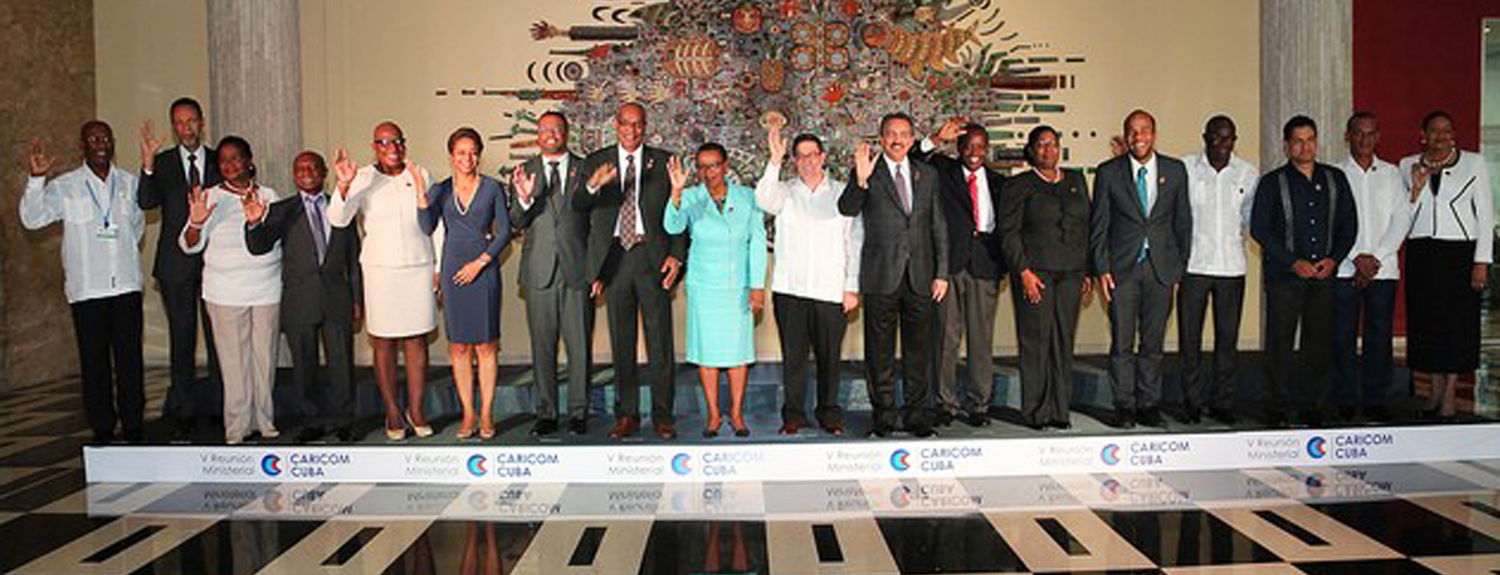OECS Represented at XXII Meeting of the Council of Ministers of the Association of Caribbean States and the V CARICOM-Cuba Ministerial Meeting
OECS Media Release
The Association of Caribbean States and the Caribbean Community (CARICOM) held a series of meetings in Havana, Cuba from March 8 – 11, 2017, at the Ministerial level, to strengthen unity and regional exchange. The meetings included: the First Cooperation Conference and the XXII Meeting of the Council of Ministers of the Association of Caribbean States, and the V CARICOM-Cuba Ministerial Meeting.
One important outcome of the meetings was the signing of the Second Protocol of the CARICOM-Cuba Agreement on Trade and Economic Cooperation (TECA), which enhances access by producers in CARICOM and Cuba to the markets of either party.
Ambassador Anthony Severin, Head of International Relations at the OECS Commission, attended the high-level meetings in Havana and underscored the priority which OECS Member States place on membership of the ACS and participation in its work. He also highlighted the high priority which OECS Member States attach to the strengthening and deepening of relations with Cuba, noting that the matter of CARICOM-Cuba relations is one which OECS Member States treat with similar attention. He confirmed the commitment of the Organisation and its Member States to pursue every action to strengthen CARICOM-Cuba relations in all spheres, and welcomed in particular, the amendment to the Agreement on Trade and Technical Cooperation.
It was agreed that the VI CARICOM-Cuba Summit will be held in Antigua and Barbuda in December 2017.
The meetings emphasized the need for unity in Latin America and the Caribbean as a means of facing external challenges and international uncertainties, and to guarantee the independence, development and well-being of the region. Participants endorsed the Declaration issued by Heads of State and Government at the V CARICOM-Cuba Summit in Havana in 2014 designating the Latin American and Caribbean region as a zone of peace. In addition, the Government of Cuba expressed appreciation to sister Caribbean countries for their solidarity and courageous support over the years, and promised to continue sharing its modest achievements with the region.
In 2016, Cuba had established commercial operations, and doubled its trade, with all Caribbean countries. The meetings in Havana considered the development of cultural exchange in the region as an instrument for sustainable development, unity, peace, education and understanding.
Cuba’s cooperation with the Caribbean region has had a high social impact. Currently, Cuba has 1,538 cooperation personnel in CARICOM Member States, mostly in the Health Sector, but also in Education, Construction, Sports and Agriculture. A total of 5,432 Caribbean students have graduated in Cuba and a further 822 Caribbean students are now studying in Cuba. Cuba also offers priority assistance to Haiti where it has 689 health workers. After Hurricane Matthew, Cuba donated 900 tons of food and materials to Haiti.
Throughout the region assistance projects are underway with the opening of the Regional School of Arts in Jamaica (including dance, music, theatre and fine arts), the Regional Center for Children and Youth with Special Educational Needs in Guyana and contributions towards the construction of the recently completed Argyle Airport in St. Vincent and the Grenadines. Cuba has also organised two (2) regional workshops on confronting natural disasters.



